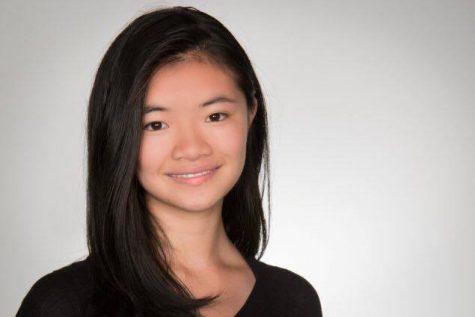“It’s all storytelling, you know. That’s what journalism is all about.” -Tom Brokaw
Read the full story about a former student’s reflections on substance use here.
here are people who walk into our journalism class and say “I want to write about drugs.” It’s something that should be hypothetically easy to write about, right? It’s one of those things that’s entwined into the stereotypical American high school culture – you’re given “Say no to drugs” lectures in elementary school, you hear jokes about them on campus, you see the occasional photos and videos about them on Snapchat.
So when we were asked to write an in-depth article, I chose perhaps the most obvious of serious topics that I could have written about. Knowing that most students wouldn’t want any association with any sort of substance use, I cautiously began asking students who were rumored to do drugs to share their experiences. Most denied the rumors and, as the school year was coming to a close, I gave up on it. It was too much research, too sensitive of a topic. I had too many excuses not to finish the story.
Her story was the one thing that rendered all my excuses useless. I first heard her story on Tuesday, March 1. Considering the sensitive nature of the story, I didn’t expect to get many details or anecdotes out of the interview. I pessimistically anticipated the dodged questions and the selective exclusion of details. A few awkward questions turned into a conversation where she shared more memories than I expected her to. In the end, I left out some of the more identifying details that she had shared from the story.
At the end of the interview I was in awe. From the way stress and a fear of losing friends pushed her to do drugs to hearing about how her family found out and responded, I was shocked but honored that she’d shared her story with me. After listening to her perceptions about drug use and the way it impacted her in every aspect of life, I left with an understanding that the stigma around drug use was entirely false and more importantly, that it was something worth writing about. I backed up the recording of the interview in five separate places – I emailed it to myself, saved it on Google Drive, put it on a USB drive and saved it to both my laptop and my family’s network drive. My recently crashed phone had left me in paranoia of losing files. And in one night, I spent three hours transcribing every line she’d said, a complete picture of the experiences that she’d shared with me, and spent another four hours writing the story.

But it was far from a complete story. There was always something missing. The complete story was one that needed an expert’s input, survey stats and a variety of perspectives. But back in March, I didn’t know that was the story I wanted to tell. I only knew that I wanted to be able to tell it, somehow. The story went unfinished; the interview waiting for me in five different places. It became just another document categorized neatly into a series of color-coded folders.
This year, I found that sometimes when I’d try to write this column, my thoughts were too cluttered. Every topic I thought of seemed unimportant. I could hardly be bothered to write at all. And then I would remember her story – which to me seemed like the epitome of a story worth telling. So this time around, I told myself I’d finish it. I messaged her to check if she was still fine with using that interview in a story. In typical teenage fashion, she responded “lol ok.”
The last thing I wanted to do was trivialize anything she’d told me. And when I found the people I wanted to talk to – people like Dr. Matthew Kendra, who works with the Stanford Addiction Medicine Clinic – I even left my beloved textbook behind the day before an unit exam just to speak with him. In the end, I found that each minute I spent in an interview for this story yielded something valuable and I couldn’t bear to leave any of the perspectives untold.
But storytelling comes in many different forms. This monthly column about my own life is one of those forms. Telling this former student’s story is a different form. Perhaps this story might just be a part of her life, a part of her identity. But to me, it’s just one of the many stories that until now, remained untold despite the glaringly common stigmas and the stereotypes that they debunk.
So this time around, I wanted to tell her story perfectly. Not just because of her, but to bring light to the existence of drugs that is masked by the peaceful community and shrouded in misconceptions – hidden behind the smoke screen.









